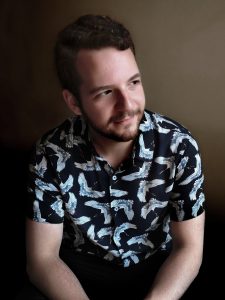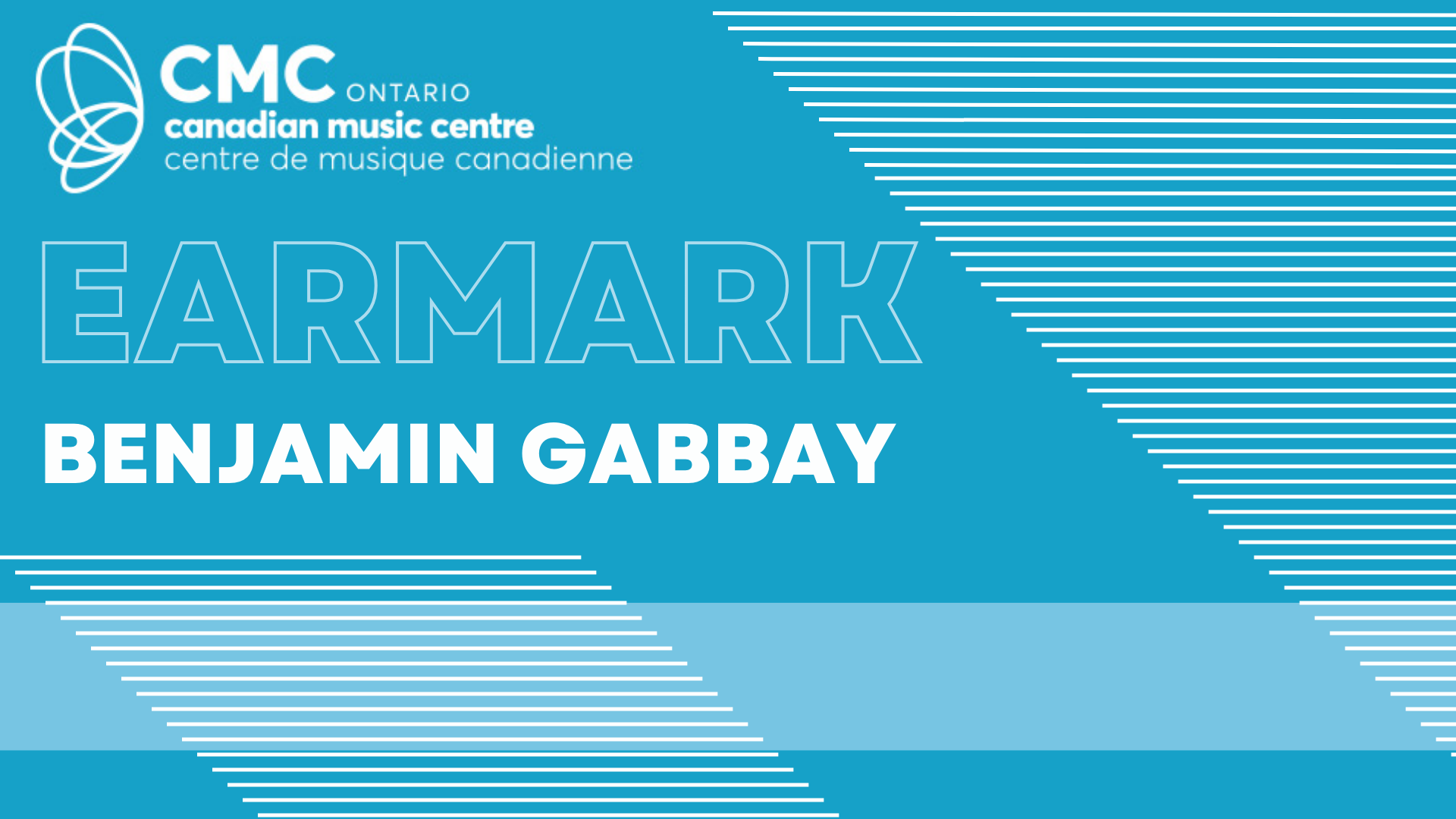In this instalment of Earmark, we catch up with Associate Composer Benjamin Gabbay about the power of music, ways to be experimental without losing the audience, and fulfilling very specific commission requests.

What got you excited about music at a young age?
Music itself! I remember listening (and dancing) on repeat to a CD of Tchaikovsky when I was as young as four, and I quickly accumulated other classical favourites in the years to follow. I started taking piano lessons at age eight, and the impetus to write my own music soon emerged out of that. I’ve always had an impulse to try and “make my own version” of any type of art I enjoyed, so the more I immersed myself in music, the more I was driven to compose.
What is an important music concert/event you attended?
I vividly remember the visit of Canadian composer Imant Raminsh to my undergraduate choir (the MacMillan Singers) at the University of Toronto in 2017. He conducted us in a performance of his “Ave verum corpus” with profound emotional intensity, in honour of his sister, who had recently passed; the work remains one of my favourites to this day. The experience affirmed in me what I had always felt and continue to believe: that we as 21st-century composers wield, just as the old masters did, a uniquely powerful language for communicating emotional narratives with a level of depth that few other mediums can match.
What have you been listening to lately? Does any of this make its way into your music?
I’ve been listening to a fair bit of jazz lately. I’ve always loved swing, but it wasn’t until the last year or two that I started exploring (and enjoying) a host of other subgenres. I think the greatest impact it’s had on the way I compose came in my realization that many of the abstract and esoteric techniques we learn about in contemporary art music live freely in the most popular jazz works. I think that there are some valuable lessons there about how even the most complex or experimental sounds can be made accessible to almost any audience if applied in the right way.
What is a significant insight that a mentor shared with you that has guided your practice?
My longtime mentor and teacher Professor Alexander Rapoport taught me a great deal about musical form (among many other things), but a lot can be summed up in his pithy observation that “a good piece of music is like a good joke.” That is to say—in overly simplistic terms—that it makes an engaging setup, takes you for a ride, and rewards you with a clever punchline.
Tell me about a project/work of yours that you are particularly proud of.
I received my first commission in 2018, from my friend and colleague Victor Cheng, then director of the Mississauga Summer Chorale he had founded a couple of years prior. Victor was interested in a very particular type of piece: a substantial work on the subject of conflict and reconciliation (the theme of the concert) that had a lively tempo and a flashy piano accompaniment (to contrast the rest of the concert program). I laboured long over the planning of the piece and the text selection and months on the work itself, but the result, my “Requiem l’homme armé,” is a work I still consider one of my best. It combines two WWI-era poems by Rupert Brooke and Wilfred Owen with the medieval war song “L’homme armé” and the famous “Prayer for Peace” (attributed to St. Francis of Assisi) in the original French. The setting of the St. Francis Prayer that closes the piece is undoubtedly some of my favourite work. The piece has had two performances: the premiere in Mississauga and another at the University of Toronto a few months later, the recording of which can be viewed here:

